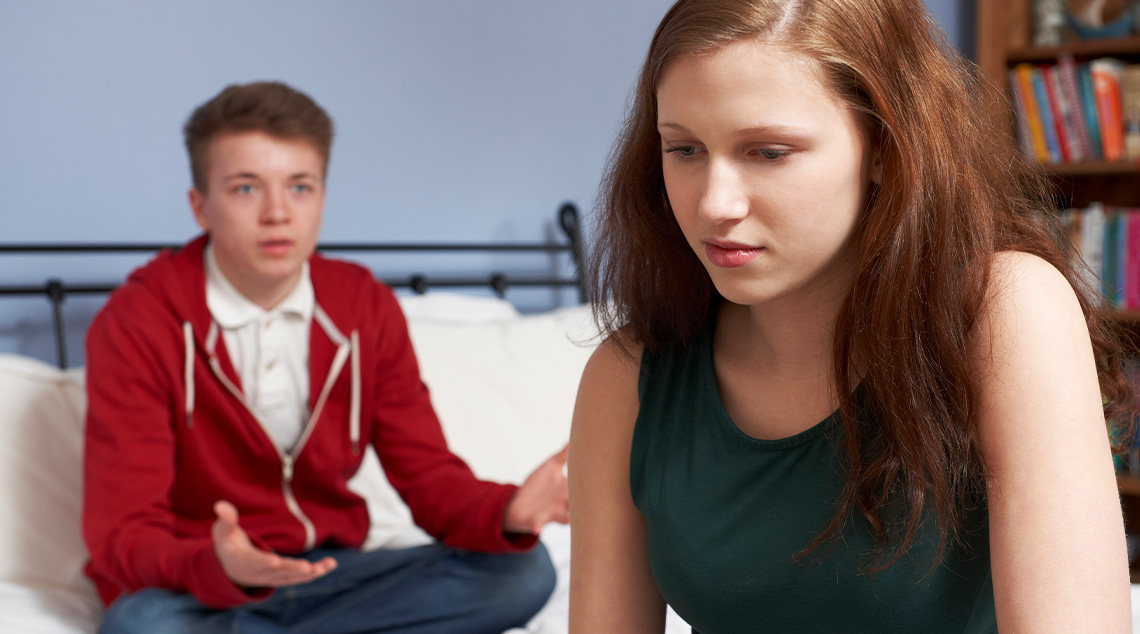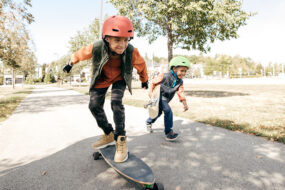Why sexual consent chats with your kids need to be the norm
Sexual consent is now part of the national curriculum to teach kids about respectful relationships. Here is why it needs to be part of the conversation at home.
According to the 2023 Australian Child Maltreatment Study, almost 30 per cent of the population have experienced sexual abuse before they were 18.
Females are almost twice as likely as males to have experienced sexual abuse.
And, increasingly, the perpetrator of the sexual abuse is under 18 years of age.
While such statistics make grim reading, Teach Us Consent founder Chanel Contos is optimistic that with the right education, sexual violence can be significantly reduced.
“The hope is we raise a new generation that is really comfortable with these concepts of consent,” Chanel says.
 Chanel Contos
Chanel Contos
The role of education in sexual assault prevention
In her book Consent Laid Bare, Chanel explains how entrenched cultural norms around male entitlement, combined with unrealistic representations of sex disseminated through pornography, is contributing to many occurrences of sexual assault – especially among young people.
Chanel, who consults for multinational companies and governments on sexual violence prevention, believes with appropriate education, sexual violence that is perpetuated out of entitlement and misogyny can be prevented.
“(I’m referring to) the kind of sexual violence that’s perpetuated out of ignorance, rather than malice, which we are so often seeing – young boys who represent what they’ve seen in pornography, hearing comments about women and girls that dehumanise them, and thinking that’s normal,” she says.
What is sexual consent?
The broad legal definition of sexual consent is a “free, voluntary and informed” agreement to participate in a sexual act.
Therefore, consensual sex is when:
- The people involved are happy and eager to engage in the sexual contact
- No one feels forced or pressured
- Anyone can change their mind or stop at any point
- Each person is fully conscious
- No one is impacted by alcohol or other drugs to the point they cannot make safe or informed choices
- Each person agrees upon choices regarding safe sex.
Importantly, consent cannot be assumed in the absence of a “no”, and it needs to be given for each sexual encounter.
In her book, Chanel reasons that displaying empathy will ensure consent.
“If you centre empathy in a sexual situation, it is impossible to violate someone’s consent,” she writes.
What is taught in sexual consent education?
Kids from Foundation through to Year 10 have been learning age-appropriate sexual consent education in Australia since the start of 2023.
The mandatory school program focuses on respectful relationships, gendered stereotypes, coercion, power imbalance, as well as how to maintain and respect boundaries, and manage rejection.
“It’s about teaching people – especially young people – how to engage in healthy and positive intimacy,” Chanel says.
“The hope is that we raise a new generation that is really comfortable with these conversations, that understands concepts of consent in a non-sexual way from a very young age.
“Therefore, when we introduce it in a sexual way, it makes a lot of sense (because) it’s already inherent in them for all interactions to be (consensual).”
Other ways the sexual consent message is being normalised
Teach Us Consent has recently partnered with sexual wellness brand Lifestyles, so from mid-2024, each condom packet will be printed with the message “always ask for consent”.
“I don’t think every time someone opens a box of condoms, they’re going to read the instructions,” Chanel says.
“But I think the first packet of condoms you buy as a teenage boy or girl – you investigate them quite closely.
“And then if that’s something you see on the foil every time you’re about to go into a sexual encounter, even for a split second, subconsciously, you’re looking over that messaging saying you always need consent, always ask for consent.
“It’s quite impactful.”
Why parents need to talk to kids about sexual consent
While sexual consent education at school is an important step in helping young people understand what constitutes a respectful relationship, Chanel says it’s only part of the equation.
“Parents play a really important role in socialising young people for healthy and respectful relationships, and ensuring their kids – especially their boys – are comfortable to hear a no, and to not take that as a personal attack on themselves,” she says.
While many parents worry about when to start talking to their kids about consent, experts recommend making it part of normal, everyday conversation.
And, Chanel urges, start early.
“Kids grow up so fast – one summer holiday can change their interests, their personality,” she says.
“And you hear the statistics of first access to pornography, or the average age of sexual violence, and it’s gut-wrenching.”
While some parents may feel their kids aren’t ready for the conversation yet, if they wait until kids are ready – or are doing things – it’s too late, Chanel notes.
“It’s like teaching someone how to drive after they’ve got their licence.”
How to talk to kids about sexual consent
Chanel believes kids are able to understand concepts of consent when these are clearly explained.
Not sure how to open up the discussion? Chanel suggests the following strategies:
Take time to educate yourself
Read Consent Laid Bare, or Google consent resources for parents; or speak to the parents of your kids’ peers for guidance.
Work on your comfort level
Be comfortable with conversations around sex and consent.
“If you have a taboo around it, they’ll feel it,” Chanel says.
Don’t beat around the bush
Forget talking about the birds and the bees.
“If you’re talking about humans, you should be clear, and you shouldn’t confuse them (your kids),” Chanel says.
Encourage your child to ask questions
Listen to your child and create space for them to comfortably ask questions, without shame.
Remember, talk to your sons too …
Importantly, Chanel says parents need to be talking with their daughters and their sons about consent.
“Parents think about this topic a lot with great concern, usually because of their daughters,” she says.
“But actually, (the) most change they can have is by thinking about how they’re talking to their sons about this sort of stuff.”
More on talking to kids about tricky topics:
- Why sexual consent chats with your kids don’t have to be weird
- Teen talk: 50 ways to get your teenagers to open up
- For love’s sake: How to talk to kids about cancer
- How to talk to kids about climate change
Written by Claire Burke.





